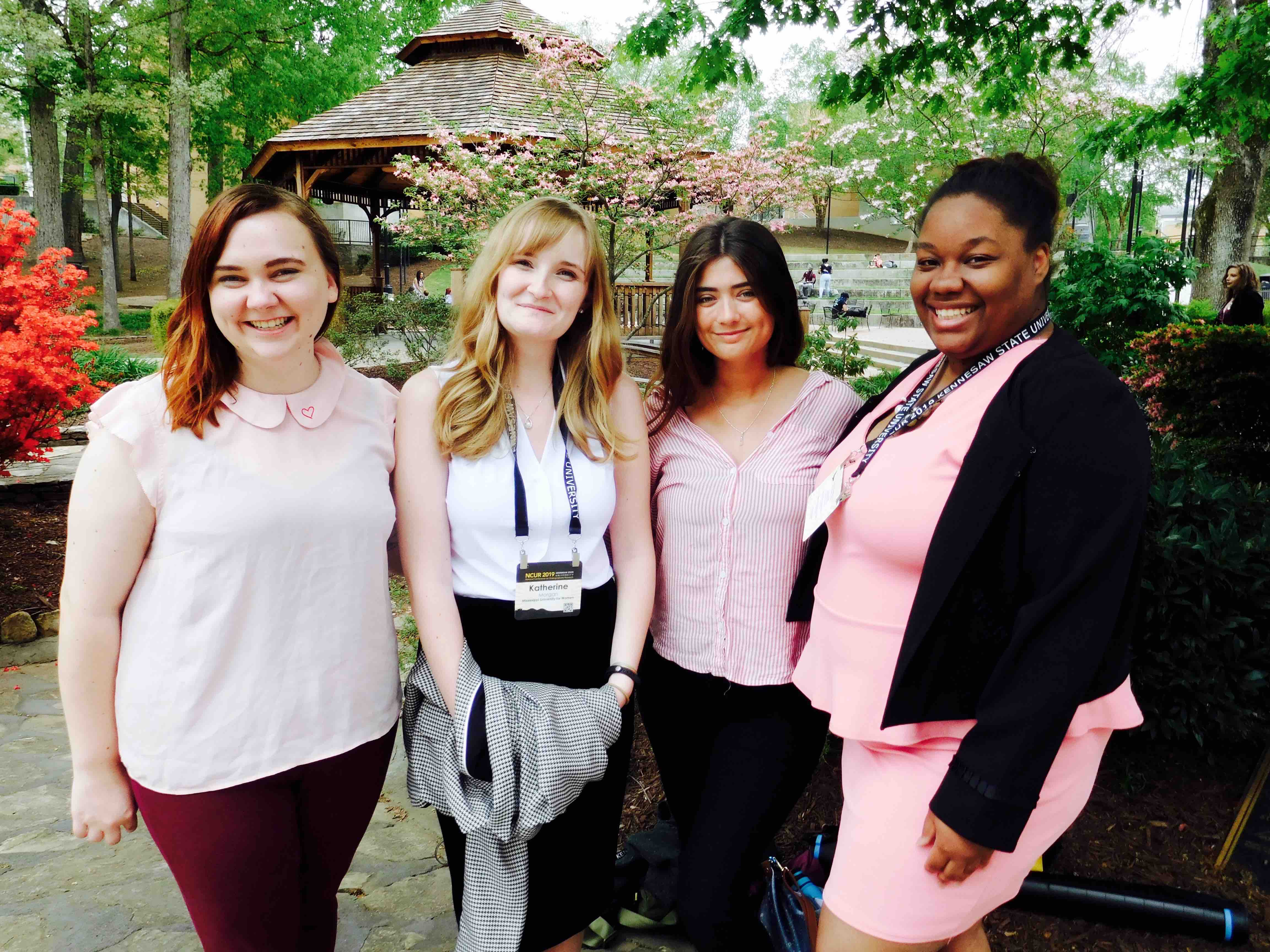The honors independent study is the capstone learning experience in the Gordy Honors College and has long been a distinguishing feature of honors education at The W. Every semester, students and faculty across campus eagerly look forward to learning about the research our honors students are doing.

Relying on published work for models in the discipline and with the guidance of a faculty committee and the Director of the Honors College, each student works independently over the course of two semesters to produce a substantial original research project. At the end of the proposal stage and again after the project is completed, the student presents the work to the campus community.
The student also has opportunities to present the research at honors or disciplinary conferences and submit it for publication–an exciting way to share the research more widely and to enhance graduate school and job applications.
Guidelines for Current Students. The honors student should consult the guidelines for an honors project in the student’s discipline and should follow these guidelines unless the student’s faculty committee advises differently. The student and faculty committee should also adhere to the following general guidelines:
1. Purpose: Using published work in the student’s discipline as models and following MUW’s discipline guidelines, the student conducts a substantial original project. The student works independently over the course of two semesters under the guidance of a faculty committee and the Director of the Honors College.
2. Academic Integrity: The student should follow MUW’s Honor Code and Academic Integrity Policy throughout the entire project. Failure to do so will result in a penalty that could include termination of the project and failure of the course.
3. Faculty Guidance: At the beginning of the proposal stage (the three-hour course HO 401), the student forms a project committee comprised of three full-time MUW faculty members to serve throughout the project. The committee should include an advisor in the research area (who also chairs the committee), a reader in the department of the research area or an appropriate related discipline, and a reader from the Honors Faculty Committee. The reader from the Honors Faculty Committee is assigned by the Director of the Honors College and is from the research area or an appropriate related discipline whenever possible. The student is expected to meet with the advisor every week and is encouraged to meet with the entire project committee at least once a semester. The student also meets with the Director of the Honors College for an orientation session, two mid-semester class sessions, and individually as needed.
Some academic programs at MUW have specified discipline guidelines, but students should always check with their Advisors/Committees on the most current expectations. In cases where discipline guidelines are not provided, again, students should check with their Advisors/Committees for expectations.
4. Proposal Stage: In HO 401, the student develops and proposes an idea for the project and conducts most, if not all, of the secondary research. The student may also begin conducting original research. For some students, the proposal stage also includes developing a research instrument and applying for human subjects research approval from the Institutional Review Board. The student should write a proposal that presents the hypothesis, details the secondary research, explains the methodology, and explains any original research already completed. At the conclusion of the proposal stage (HO 401), the student also presents a poster of the proposal at the Honors Research Symposium, which is open to campus and community. The poster should include the information that best represents the student’s project at the time. At the very least, this includes the name of the student, the names of the project committee members, the title of the project, the thesis/hypothesis, and other relevant information such as definitions, highlights of the secondary research, methodology, and examples. The poster should be both professional and creative and should include an appropriate mixture of text and graphics. The student’s poster presentation is evaluated by members of the Honors Faculty Committee for project design, style of oral delivery, and effectiveness of the poster. The poster presentation typically lasts six to eight minutes and may be made multiple times in the course of the symposium.
5. Completion Stage: In the three-hour course HO 402, the student completes the research and writes an essay conveying all elements of the research following the guidelines for the discipline. The student also presents the completed research at the Honors Research Symposium. The oral presentation should convey the entire finished project and include visual elements (typically PowerPoint or other presentation slides). The student’s presentation is evaluated by members of the Honors Faculty Committee for project design, completeness in conveying the project’s purpose and results, style of delivery, and effective use of visual aids. The presentation typically lasts 10-12 minutes depending on the total number of students presenting.
6. Deadlines: The student must submit all assignments in the syllabus on time to the Honors Director and to all three members of the student’s project committee. Failure to submit project elements on time will result in course penalties as detailed in the course syllabus. The student may arrange with the project committee to submit additional project materials/drafts between deadlines.
7. Disseminating the Research: Students are highly encouraged to seek additional ways to share their research, whether by presenting at honors conferences (funded by the Honors College), presenting at disciplinary conferences, or publishing in undergraduate or professional journals. In taking advantage of these opportunities, not only are students able to share the results of their research more widely, but they can network with other students and professionals in their field, further develop their writing and oral presentation skills, and enhance their resume for graduate school and job applications.